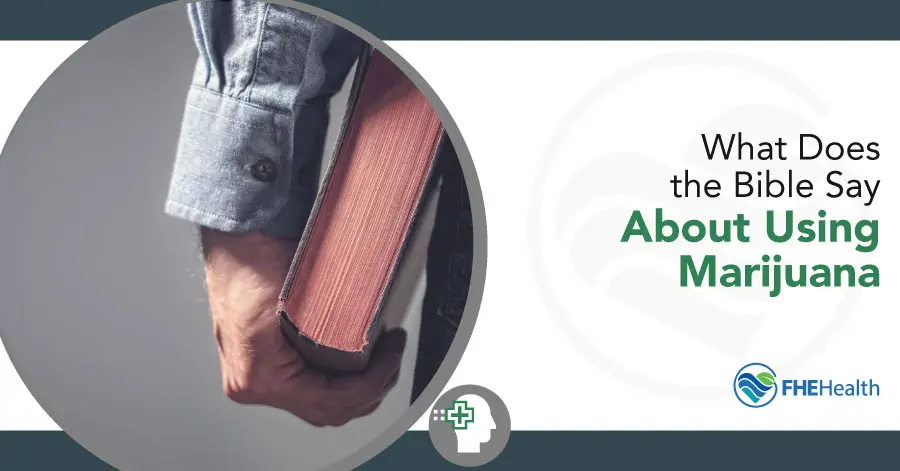
Marijuana use is more common than ever. In 2021 about 19% of Americans used weed at least once. Shifting attitudes and legalization have made marijuana socially and culturally normalized in American culture. Of those who weekly attend religious services, 29% see marijuana use as Very or Somewhat positive (Gallup Poll). As a result, many Christians find themselves asking themselves: What does the Bible say about using marijuana?
The Bible does not mention marijuana directly. Instead, scripture offers broader principles about sobriety, self-control, obedience to authority and avoiding behaviors that impair judgment or cause harm. Because the question is not answered with a single verse, Christians must evaluate this modern issue using the biblical framework.
Before drawing conclusions, it helps to look at how the Bible approaches intoxication, personal freedom, and responsibility – and how those teaching might apply to marijuana use today.
Cannabis in the Bible
People have been using marijuana for medicinal and recreational purposes for thousands of years. The cannabis plant is one of the oldest crops. Archaeologists have found marijuana paraphernalia as far back as 2,500 years ago in China, India, Africa and Assyria. In fact, there’s even some evidence that marijuana was used for its hallucinogenic effects in ancient Israel.
Marijuana use was likely a contemporary issue when the books of the Bible were written, yet the Scriptures were silent on the topic.
Does this mean that using marijuana recreationally is a theologically sound practice? Not necessarily. There may not be an explicit verse in the Bible about weed or getting high, but it has plenty to say about similar vices, such as alcohol. These cautions against getting drunk and losing the ability to make sound judgments would probably apply to activities like smoking marijuana as well.
Marijuana Can Be a Powerful Vice
At first glance, the increasing popularity of weed may raise concerns about addiction. However, the truth is that about nine out of 10 people who use marijuana don’t develop an addiction to it. Particularly among those who didn’t begin using weed until adulthood, quitting marijuana is easy compared to quitting harder drugs such as cocaine or heroin.
Addiction to medical marijuana may be rare, but about 30 percent of those who use weed have some degree of marijuana use disorder. This is similar to dependence, which is when an individual experiences withdrawal symptoms when they’re not using a drug.
Common Withdrawal Symptoms in Regular Users
Those who use marijuana regularly and then stop may experience withdrawal related symptoms such as:
- Irritability
- Sleep disruptions
- Nervousness
- Decreased appetite
- Food cravings
- Depressed mood
- Difficulty regulating mood
- Anxiety
- Restlessness and physical discomfort
- Digestive issues
These symptoms can last up to two weeks after quitting weed, making it very difficult to abstain. Particularly as marijuana products have become more concentrated – marijuana use disorders have become more commonly reported.







